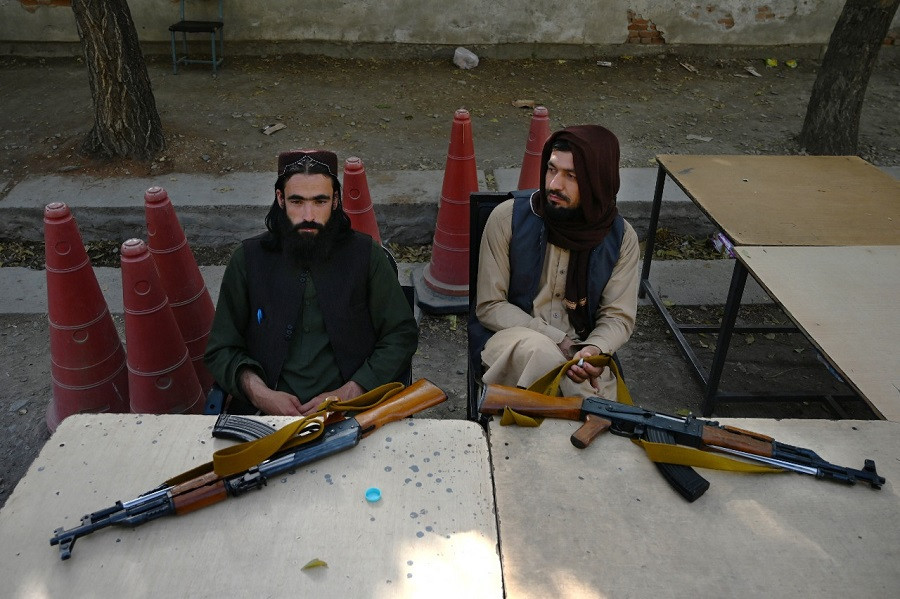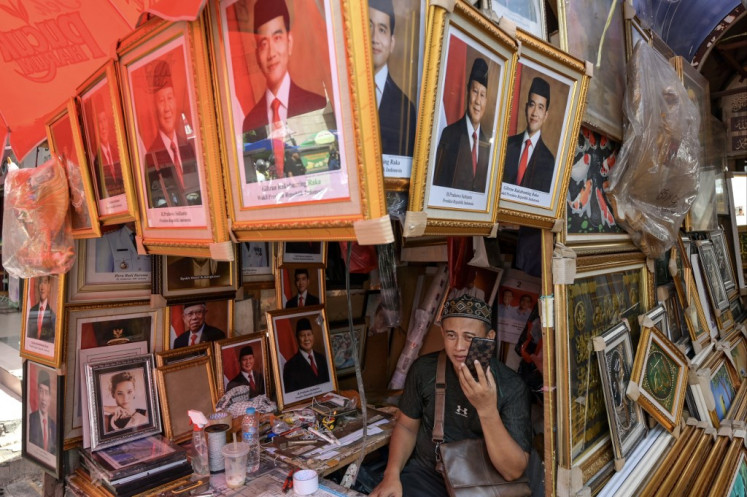Afghanistan, Biden’s strategy and Indonesia’s interests
There is no clear picture of the Taliban’s ability to protect Afghanistan’s territory or to create a secure, just and prosperous Afghan nation.
Change Size
 Young guns: Taliban fighters sit outside Kabul's passport office after the hard-line group announced the reopening of passport applications in Afghanistan on Oct. 6. (AFP/Wakil Kohsar)
Young guns: Taliban fighters sit outside Kabul's passport office after the hard-line group announced the reopening of passport applications in Afghanistan on Oct. 6. (AFP/Wakil Kohsar)
T
he fall of the Islamic Republic of Afghanistan on Aug. 15 to the hands of the Taliban following the exit of the United States and allied forces marked a new beginning for Afghanistan and the country’s strategic impacts on international security in the coming years.
Three general historical patterns are obvious with regard to Afghanistan. First, the land, which connects Eurasia, has been continuously contested by foreign and global powers. Second, the tribal inhabitants are prone to fighting each other. And third, no clear unifying ideology exists to integrate different tribes, as even religious-political ideologies have failed to sustain their unity as a nation and country.
That said, no global powers stay there for a long time since their periodic presence in Afghanistan is only measured by Afghanistan's temporary influence on their national interests.
The future of Afghanistan under the Taliban hinges on their capability of coping with human, national and global security issues. The international community has noted that the Taliban have still not fulfilled many of their promises, including – but not limited to – redressing the warlord-dominated cabinet and discrimination against women.
First, it remains uncertain whether the Taliban can provide human security throughout the country according to the universal standard of the Human Rights and Human Security Indexes. Many say it is Taliban, rather than the Afghan people, who have the upper hand in changing the destiny of Afghanistan. This is the inverse logic of founding a state, in which citizens are the main subject of national development.
Second, there is no clear picture of the Taliban’s ability to protect Afghanistan’s territory or to create a secure, just and prosperous Afghan nation. The Taliban are likely to transform Afghanistan into a police state that emphasizes achieving national security at the cost of human security while at the same time being unable to provide basic services and public goods to the Afghan people.
Third, the international community doubts that the Taliban regime can or will avoid creating international security problems.

















